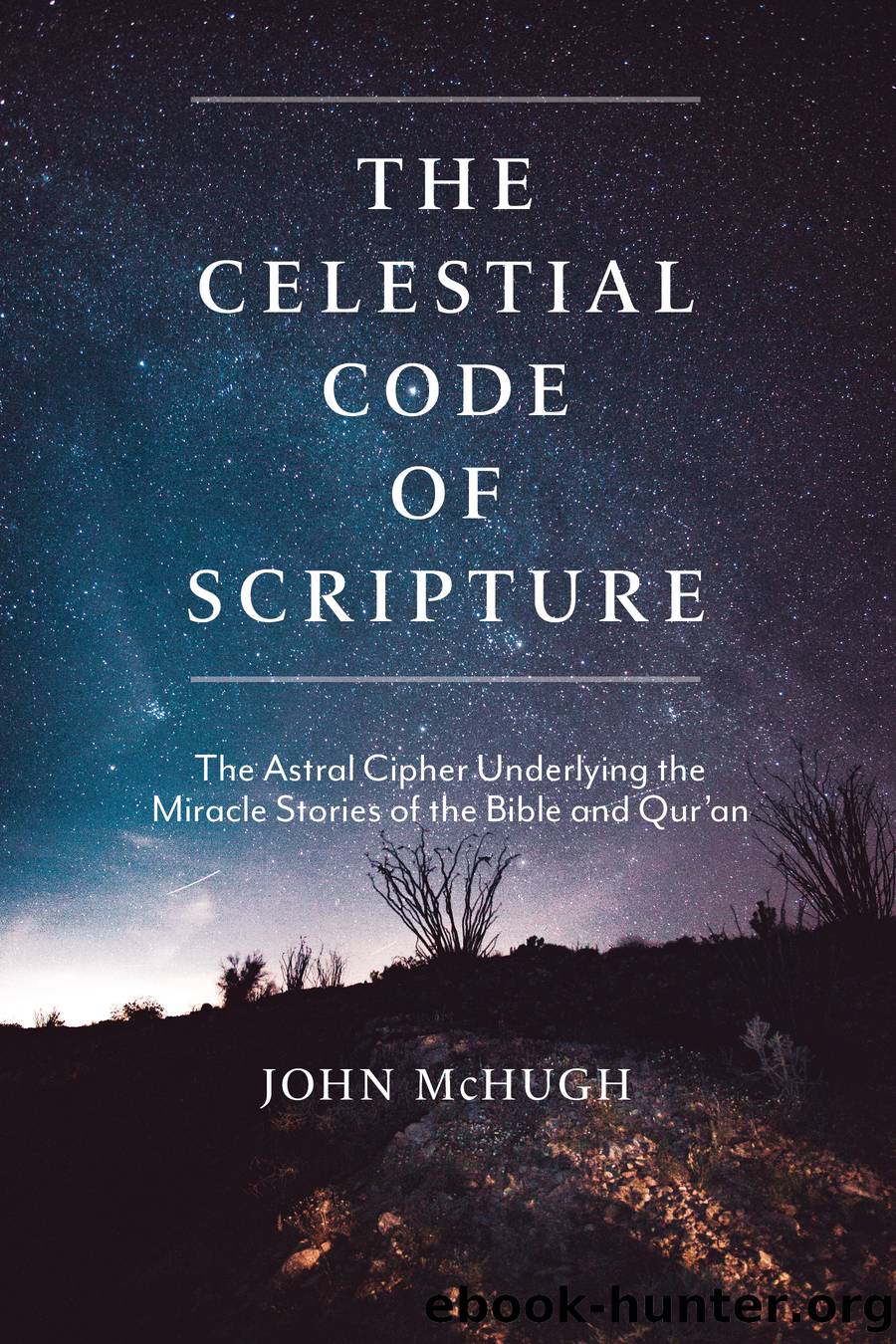The Celestial Code of Scripture by John McHugh

Author:John McHugh
Language: eng
Format: epub
Publisher: Monkfish Book Publishing
Published: 2021-11-19T16:29:31+00:00
Overview of the Flood Myth
I had misgivings about the scholarly-accepted explanation for the Flood narratives. For me the most incriminating fact was the Flood storyâs inception and transmission. Earlier we noted that writing was invented by the Sumerians in circa 3000 BC. Yet the first mention of the Flood originates as a terse, two-sentence statement of fact in a circa 2050 BC text known as the Sumerian King List, where it serves as a temporal marker separating time into two epochs: monarchs who reigned before and after the Flood.2 Intriguingly, the Sumerian King Listâs Flood reference is entirely devoid of a storyline, plot, and denouement. Three centuries would pass before Babylonian scholars would compose the oldest, extant Flood storyâone that recounts the familiar leitmotifs that appear later in Genesis, in which a pious flood-hero, his extended family, and the seed of all living creatures endure a universal flood in a huge boatâa text modern scholars refer to as The Tale of Atra-ḪasÄ«s.
Intriguingly, around 1600 BC (about two centuries after the Sumerian language ceased to be spoken as a mother tongue) a Sumerian version of the legend appears. This Sumerian Flood Story does not appear to be a copy of a Sumerian original text but was instead probably inscribed by Akkadian-speaking Babylonians in the dead language (Sumerian) that had been appropriated as their sacred script. According to W. G. Lambert and A. R. Millard, thematic similarities between the âSumerian Delugeâ and the slightly older Tale of Atra-ḪasÄ«s Flood story suggest the author of the Sumerian version had utilized Atra-ḪasÄ«s as a template. Lambert and Millard go on to demonstrate that Mesopotamian versions of the Deluge drama had been disseminated into Syria between 1500 and 1000 BC, and it was during the latter timeframe that the legend was being incorporated into The Epic of Gilgamesh, where it was canonized as tablet XI of that text.
Therefore, the textual evidence indicates that the Sumerians, the people who inhabited the flood-ridden Tigris-Euphrates River valley of southern Mesopotamia since circa 6000 BC, did not compose the earliest accounts of a Deluge. This crucial omission is noted by Sumerian scholar Miguel Civil, who writes:
Download
This site does not store any files on its server. We only index and link to content provided by other sites. Please contact the content providers to delete copyright contents if any and email us, we'll remove relevant links or contents immediately.
| Ancient & Controversial Knowledge | Ghosts & Hauntings |
| Hermetism & Rosicrucianism | Magic Studies |
| Occultism | Parapsychology |
| Supernatural | UFOs |
| Unexplained Mysteries |
Animal Frequency by Melissa Alvarez(4473)
Sigil Witchery by Laura Tempest Zakroff(4246)
Real Magic by Dean Radin PhD(4129)
Fingerprints of the Gods by Graham Hancock(4004)
Aleister Crowley: The Biography by Tobias Churton(3640)
Journeys Out of the Body by Robert Monroe(3624)
Alchemy and Alchemists by C. J. S. Thompson(3522)
The Rosicrucians by Christopher McIntosh(3520)
Mysteries by Colin Wilson(3454)
Hitler's Monsters by Eric Kurlander(3343)
The Hatha Yoga Pradipika (Translated) by Svatmarama(3342)
Wicca: a guide for the solitary practitioner by Scott Cunningham(3179)
John Dee and the Empire of Angels by Jason Louv(3166)
Infinite Energy Technologies by Finley Eversole(2984)
Book of Life by Deborah Harkness(2939)
Dark Star Rising by Gary Lachman(2867)
The Book of Lies by Aleister Crowley(2847)
Aliens by Jim Al-Khalili(2829)
To Light a Sacred Flame by Silver RavenWolf(2823)
